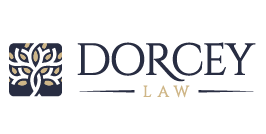Defining Blended Families: The Modern Household
Blended families have become a common structure in modern society, reflecting the changing dynamics of relationships and the complexities of merging households. A blended family typically arises when two individuals, each with children from previous relationships, come together to form a new, unified family unit.
This new dynamic can introduce a variety of challenges, particularly when it comes to estate planning. The intricacies of including step-children, ex-spouses, and new marital assets require careful consideration to ensure that the final estate plan reflects the wishes of the family members and maintains harmony within the household.
Challenges in Estate Planning for Blended Families
The unique dynamics of a blended family can significantly affect estate planning. For instance, there may be a desire to ensure that children from a previous marriage inherit certain assets while also providing for the new spouse and any mutual children.
One of the most pressing challenges is ensuring fairness among biological and stepchildren, which can be a source of tension and conflict. Parents often struggle with the desire to provide equally for all children while also recognizing that different children may have different needs or expectations. There may also be concerns about the perception of favoritism, which can lead to strained relationships or legal disputes after the parent's death.
Another challenge is the complexity of managing assets that were acquired before the new family was formed, as well as those accumulated during the marriage. Determining what is fair and equitable can be difficult, especially when considering factors such as the length of the marriage, contributions to the family's wealth, and the financial needs of all parties involved. Without a clear and well-communicated estate plan, blended families may find themselves embroiled in legal battles that can drain emotional and financial resources. It is essential to approach estate planning with a strategy that acknowledges these challenges and seeks to prevent potential issues before they arise.
Impact of Divorce & Remarriage on Estate Plans
Divorce and remarriage can have profound effects on an individual's estate plan. For those in blended families, it is crucial to review and update estate planning documents following these changes in marital status.
A divorce may nullify certain provisions in a will or trust, such as those benefiting a former spouse, while remarriage can introduce new considerations for the inclusion of a new partner and any step-children. Failing to update an estate plan after these events can lead to unintended consequences, such as an ex-spouse inadvertently remaining as a beneficiary or a new spouse not being adequately provided for.
The importance of keeping estate plans current in the wake of divorce and remarriage cannot be overstated. It is a proactive measure that can prevent legal complications and ensure that an individual's wishes are honored.
Estate Planning Tips for Blended Families
Here are some estate planning tips specifically geared toward parents in blended families:
- Prioritize open communication. Before any legal paperwork begins, it's crucial to have open conversations with your spouse and children about your intentions. This can help avoid misunderstandings and potential disputes down the line.
- Specify your wishes clearly. It's essential to be explicit about who gets what in your will. Vague language can lead to disputes and confusion. For instance, instead of saying, "I leave my assets to my children," specify their names and what each person will receive.
- Consider a trust. There are many different types of trusts that can allow you to protect your spouse and your children. For instance, a Qualified Terminable Interest Property (QTIP) trust allows you to provide for your spouse during their lifetime while ensuring that the remainder of your estate goes to your children after your spouse's death. Another option may be a Lifetime Beneficiary Trust for your children. This type of trust can protect your children's inheritance from creditors, divorces, and other potential issues. It also ensures that the assets remain in your bloodline.
- Update beneficiary designations regularly. Insurance policies, retirement accounts, and various other assets typically transfer through the designation of beneficiaries. It's crucial to regularly review and update these designations, particularly following major life events such as a divorce or the birth of a child.
- Avoid no-contest clauses. A no-contest clause is believed to discourage disgruntled heirs from contesting your will or trust. However, Florida courts do not enforce no-contest clauses (see Florida Statute § 732.517).
- Appoint a neutral executor or trustee. To avoid potential conflicts of interest, consider appointing a neutral third party, like a trusted friend or professional advisor, as your executor or trustee.
- Consult with an estate planning professional. Given the intricate dynamics of blended families, it's advisable to seek the expertise of a professional who is well-versed in estate planning for such families. Their specialized knowledge can offer tailored guidance and help ensure that no critical details are missed in the planning process.
Seeking Professional Estate Planning Help
Given the complexities inherent in blended family dynamics, seeking professional estate planning help is not just advisable; it's essential. Estate planning attorneys and financial advisors with experience in blended family situations can provide invaluable guidance, ensuring that the estate plan is comprehensive, legally sound, and tailored to the unique needs of the family. These professionals can navigate the nuances of state laws, tax implications, and family relationships to create a plan that aligns with the family's goals and values.
If you're part of a blended family in Fort Myers or the surrounding areas, consider reaching out to the Dorcey Law Firm. Our team is ready to assist you in creating an estate plan that works to make sure your family's future is secure and your legacy is preserved.
Call (239) 309-2870 to schedule an initial consultation today.



